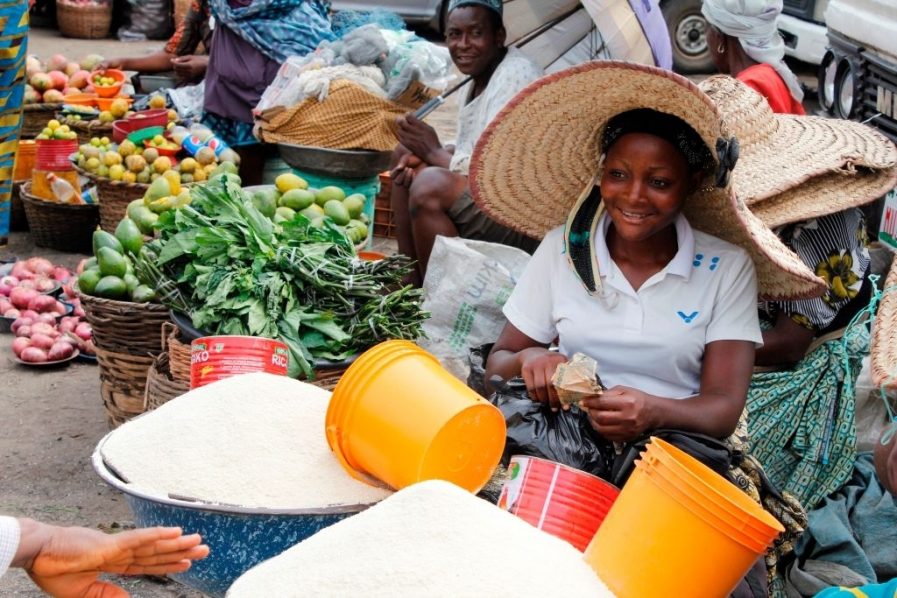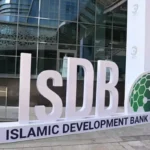By Isaac Atunlute
Each day, thousands of women take to the streets in Lagos—hawking across borders, roads, and markets—with sheer determination and grit.
For many, access to finance has long been a closed door, but now a new state initiative is opening that door.
In a significant policy shift, the Lagos State government has launched a ₦500 billion fund beamed at Micro, Small, and Medium Enterprises (MSMEs), with a special focus on women traders, who dominate the lower rungs of the trading economy.
Backed by an additional ₦500 billion from the Bank of Industry, the initiative creates a ₦1 trillion funding pool described by officials as a “non-collateralised, zero-interest” facility. This fund will be accessible through women’s cooperative platforms, groups built on trust and shared goals.
The fund was unveiled at the closing ceremony of ECOWAS Caravan 2025, a subregional initiative that highlighted the phenomenal challenges of women engaged in cross-border trade.
From harassment at checkpoints and unofficial levies to a lack of proper documentation and limited access to finance, West African women traders have had to navigate barriers that stifle their growth and productivity.
The Abidjan-Lagos caravan was both symbolic and practical—a mobile forum that gave visibility to pressing issues too often sidelined in regional trade policy discussions.
But the fund signals something more: a state-level intervention that targets real women—not elites or consultants—but the market women who oil the engine of everyday commerce.
Local problems, local solutions.
The fund includes a six-month moratorium and is specifically for women operating their affairs through registered cooperative organisations, and by using cooperatives as distribution channels, the initiative aims to avoid bureaucratic hurdles and overcome trust barriers.
However, finance is only half the solution.
This is where the fund can make a real difference if managed transparently, supported by financial literacy training, and evaluated based on real-world outcomes rather than just numbers on a spreadsheet.
Learning from what works.
Related activities have had promising results. The MASLOC initiative in Ghana provided low-interest loans to informal women traders to facilitate scaling up of activity together.
Earlier, in Nigeria, the Anambra State SME Development Fund, though small, made single-digit interest loans available through women’s associations and cooperatives.
It showed how providing finance through the network of people whom women trust significantly fosters uptake as much as repayment.
Lagos could adapt these insights; the new fund can be incorporated into current platforms such as Lagos State Employment Trust Fund, which has minimal delays.
It should be designed to address, in particular, cross-border business — processing different currencies, transport delays, and informal taxation systems.
The Lagos initiative presents the potential of putting money side by side with infrastructure. It would not only enable the women to expand their enterprises but also be incorporated in the formal trade circuits, insured, and covered by the policy frameworks.
But as with every ambitious gambit, it will be dependent upon execution.
If Lagos gets it right, through transparency, consultative processes, and monitoring of their effects, it can be replicated among other ECOWAS and Nigerian member states who want to integrate women-owned enterprises into local development.
Because what these traders need is not more applause—they need policies that meet them where they work and support them to grow where they stand.
The Lagos State government has introduced a transformative initiative, creating a ₦1 trillion funding pool aimed at supporting Micro, Small, and Medium Enterprises (MSMEs) with a specific focus on women traders. This fund, backed by an additional ₦500 billion from the Bank of Industry, is designed to be a "non-collateralised, zero-interest" facility accessible through women's cooperative platforms to promote trust and shared goals. The initiative was revealed during the ECOWAS Caravan 2025, which spotlights the challenges faced by female traders in cross-border trade such as harassment, unofficial levies, and limited financial access.
The fund aims to empower women, particularly those in local and cross-border trade, by leveraging cooperative structures to bypass bureaucratic hurdles and expand access to finance. Financial literacy training and transparent management are key aspects of the project's success, mirroring effective strategies from similar initiatives in Ghana and Nigeria. The project seeks integration with existing platforms like the Lagos State Employment Trust Fund to further enhance its impact, particularly in handling cross-border business challenges.
Successful implementation could enable Lagos to set a precedent for similar initiatives across ECOWAS and Nigerian states, empowering women traders through infrastructural and policy support, helping to legitimize and expand their enterprises. The project's success hinges on transparent execution, monitoring, and adaptation of proven strategies to meet the community's needs effectively.






